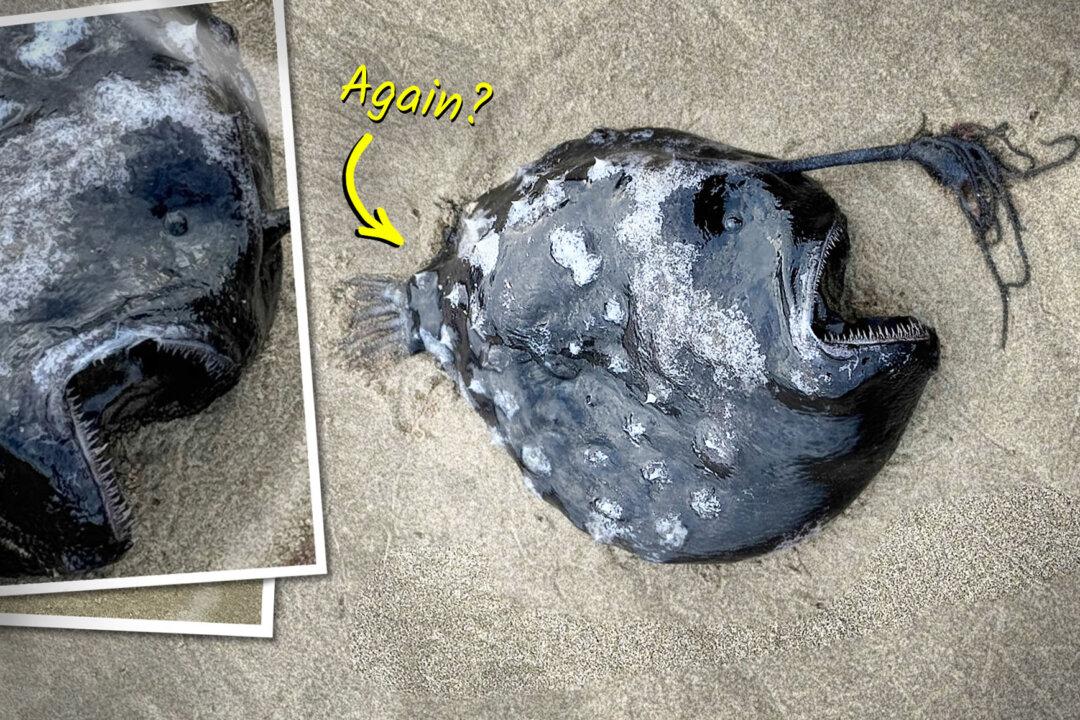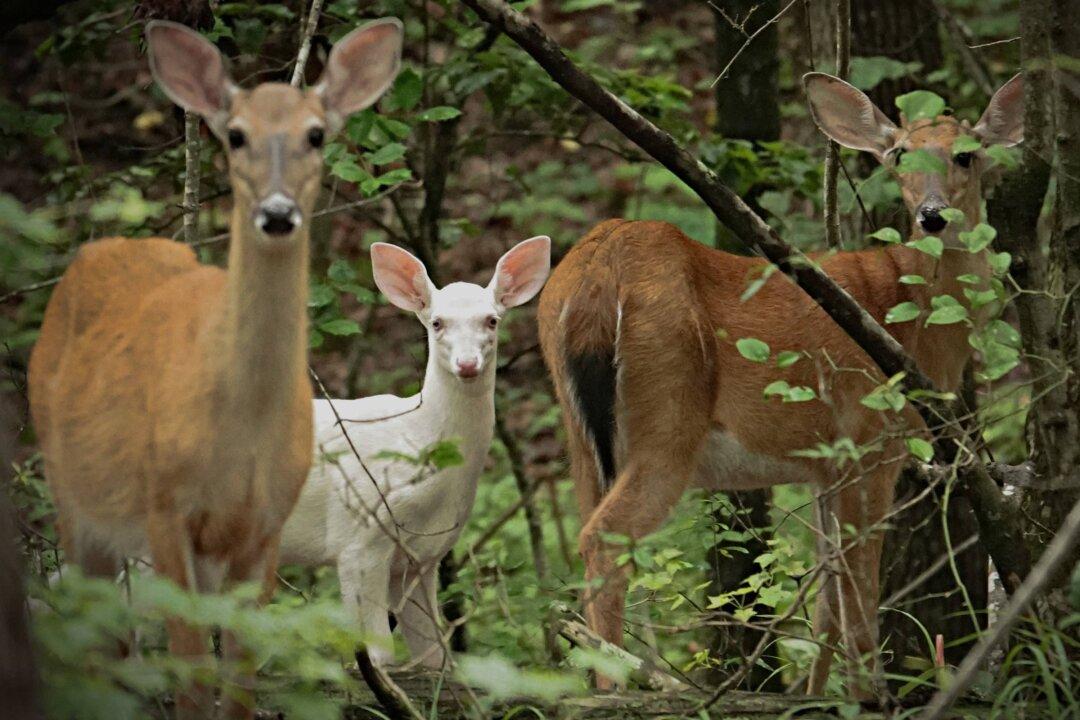Another toothed wonder from the cold, sunless deep sea has washed up on land—this time on northern shores, near Cannon Beach, Oregon.
On May 18, the nearby Seaside Aquarium posted the discovery of a glistening black blob of a fish with the approximate shape and size of a football. It had beady eyes, a startling underbite with rows of sharp tiny teeth like shards of glass, and a strange stalk protruding from its forehead like an alien antenna.






